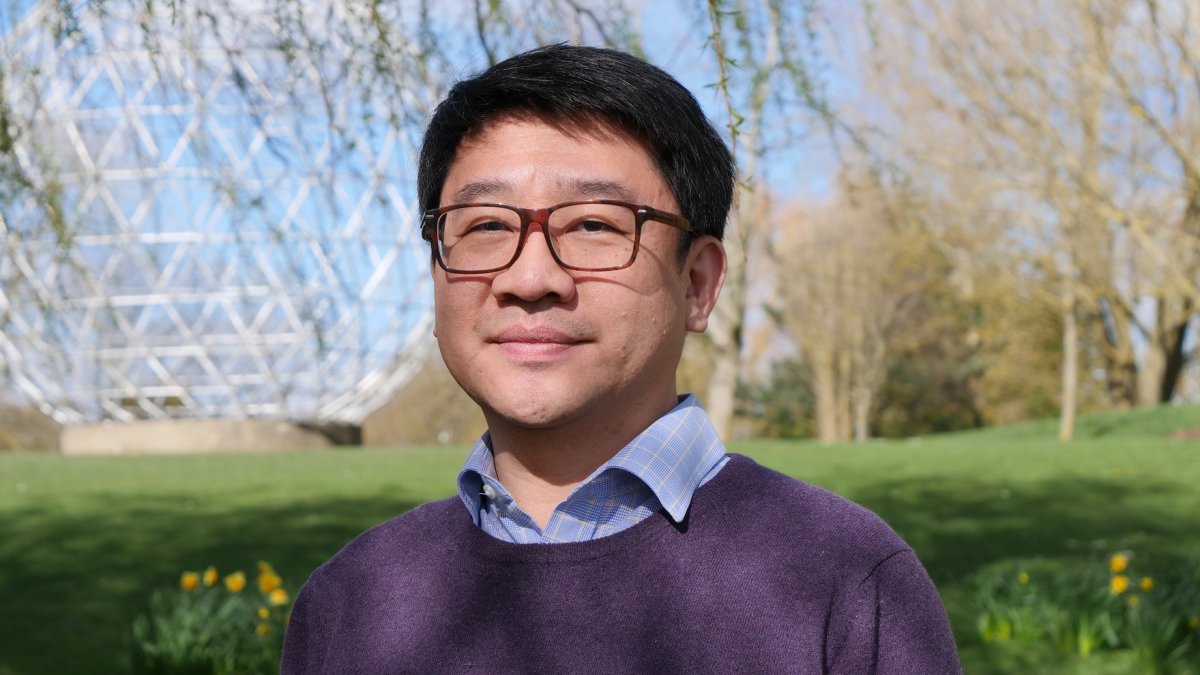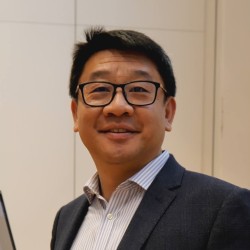Meet the academic: Professor Yi-Zhe Song
Professor in Computer Vision and Machine Learning, and Programme Leader of Surrey’s MSc in Artificial Intelligence (AI), Yi-Zhe Song explains why AI is so much more than coding, and talks about building the human talent needed for AI to fulfil its potential.

Dr Yi-Zhe Song
Please introduce yourself – perhaps you could tell us something that isn’t on your staff profile page?
I have worked on AI for over 17 years now, ever since my undergraduate project on creating image panoramas, to now leading a research lab (SketchX) on computer vision and machine learning within Surrey’s Centre for Vision, Speech and Signal Processing (CVSSP), the largest AI centre in Europe. In hindsight though, I can also see myself becoming a car mechanic – my retirement plan is to restore vintage cars back to their former glory.
What is your particular area of academic expertise, and why are you passionate about it?
In the SketchX lab, we are trying to understand how seeing can be explained by the way humans draw. I’m passionate about this area of research because it underpins the very heart of computer vision, i.e., understanding how humans see (by studying how they draw). This has so much scope for impact. There are many potential applications such as criminal recognition, gaming (where you can draw a customised weapon, for example), and internet searches (drawing what you want to purchase to find commercially-available options).
When did you first get interested in computer vision?
As an undergraduate student, my final year project involved creating image panoramas (now ubiquitous on mobile phones), and this inspired me to get into computer vision.
I was lucky enough to be studying at a time when object recognition was in its earliest stages. During my PhD I explored how an image from a camera could be translated into abstract art – for example how a simple image of a snail could be transformed into something like Henri Matisse’s famous work ‘L’Escargot’ using computer vision techniques.
Why did you decide to become an academic?
When I finished my masters course I had the choice between working in a sector like banking, or pursuing research. I decided that I could make more difference if I went into research. I knew that the work we were doing in the field of computer vision (the driving force behind AI) was something that could have a huge impact on people’s lives.
Following my PhD at the University of Bath I moved to Queen Mary University of London before coming to Surrey in 2019 where I founded and lead the MSc in AI.
What are the best parts of your job?
While the research breakthroughs I’ve achieved are exciting, I find that the teaching side of my job is highly rewarding. I teach undergraduates and masters students, and also supervise PhD students. It’s incredibly important that we build the human talent we need in order for AI to fulfil its potential.
Why should people study for a masters in AI at Surrey?
AI is not simply coding or deep learning or computer vision, and the people who are going to lead the field need to have a broad vision. Surrey’s MSc in Artificial Intelligence is the broadest in the UK, encompassing not only the three most important aspects of AI (vision, speech and 5G), but also the business, regulation and ethical aspects.
Find out how our MSc is built on three decades at the forefront of machine perception.
"The course opens the door to jobs like AI scientist at a leading global tech company, AI analyst in finance/banking and other sectors, entrepreneurial roles, or industry-sponsored PhD studentships. The unique thing about this field is that there will a multitude of job roles we have yet to see, which require a broad understanding of AI."
What are you looking for in a postgraduate student?
Enthusiasm and determination, most importantly. Background is less important, and we’ll look at students who have first degrees outside of computer science and engineering on a case-by-case basis. The flexibility of our MSc means students can choose the modules which most suit their background and interests.
Our masters courses tend to attract not only graduates but also senior professionals and entrepreneurs setting up their own businesses.
What should people know about the University of Surrey?
I think there’s a real sense of togetherness at Surrey. Academics have a shared drive towards teaching excellence (demonstrated in our TEF Gold status) and are passionate about nurturing students and embedding research in their teaching.
Find out about our electrical and electronic engineering courses, including our MSc in Artificial Intelligence.
